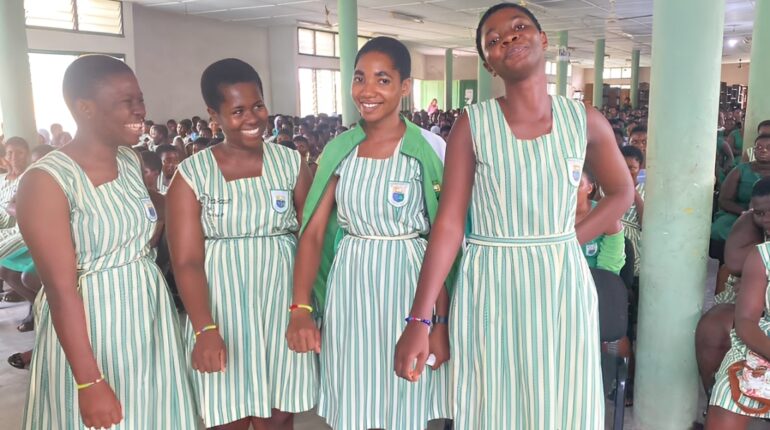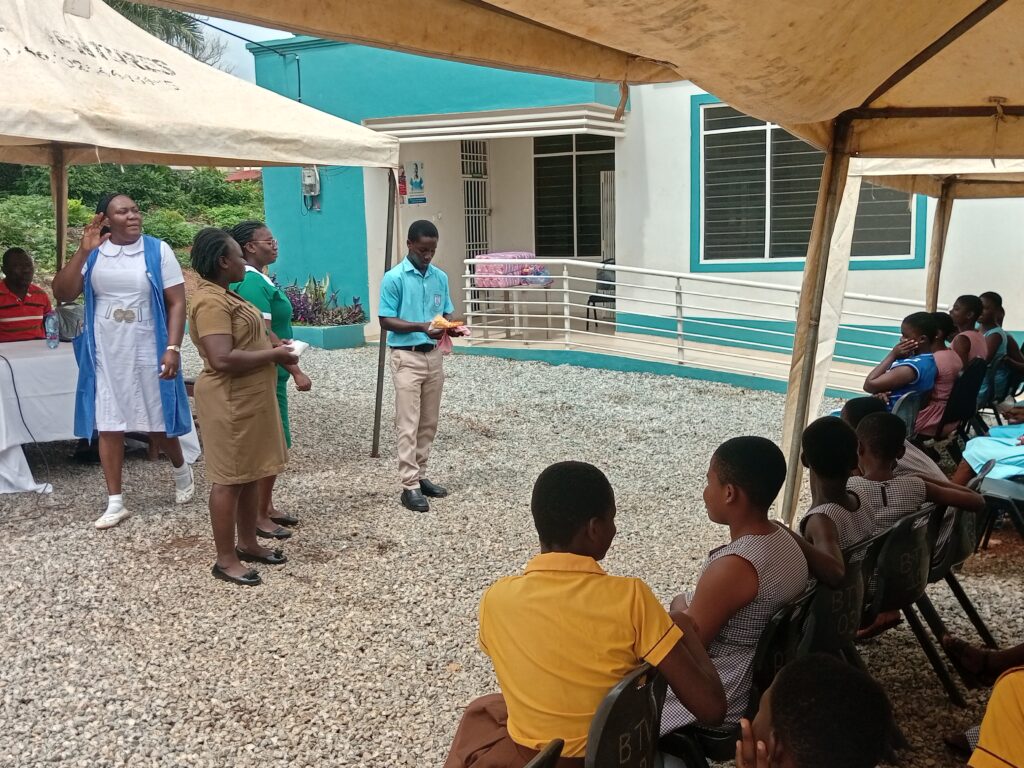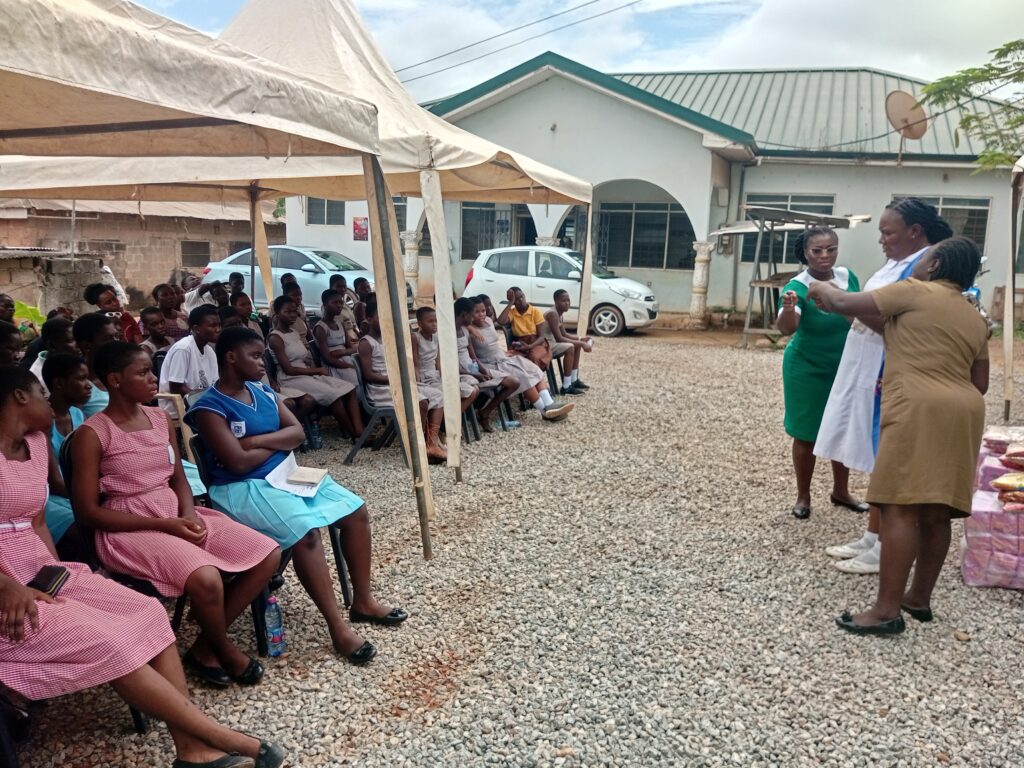
In an inspiring move to break menstrual health taboos and empower young girls, Human Rights and Development Services (HURDS) has taken a bold step by engaging five schools in the Prestea Huni-Valley of the Western Region to educate students—especially adolescent girls—on menstrual hygiene. The programme aimed to raise awareness and foster a supportive environment for menstrual health management
The initiative, which is part of the organization’s broader commitment to youth and gender empowerment, aims to improve knowledge, dispel myths, and foster supportive environments for girls to manage menstruation with dignity and confidence.

Why Menstrual Hygiene Matters
Madam Maribel Okine, the Western Regional Director for Gender, has emphasized that menstruation is a natural and universal experience for women and girls, and that menstrual hygiene is a fundamental aspect of reproductive rights. She urged young girls to practice proper menstrual hygiene management to protect their personal health and safety.
She made these remarks during an event organized by Human Rights and Development Services (HURDS) in partnership with the Ghana Education Service – Prestea Huni Valley, as part of activities to commemorate Menstrual Hygiene Day. The event brought together students from several basic schools in the community to educate and empower them on menstrual health and hygiene.
Menstruation is a natural biological process, yet it remains one of the most stigmatized topics in many communities. Inadequate knowledge, poor access to menstrual hygiene products, and deeply rooted cultural misconceptions often lead to shame, school absenteeism, and low self-esteem among adolescent girls.
Recognizing this gap, Hurds Ghana organized a series of interactive sessions across selected schools. These engagements offered students a safe space to learn about their bodies, ask questions, and receive accurate information on menstrual health management.

Engaging Schools, Empowering Girls
The outreach program spanned five schools across various communities, reaching hundreds of students — primarily adolescent girls, but also boys and teachers. Through practical demonstrations, open discussions, and storytelling, facilitators broke down sensitive topics into relatable and digestible content.
Participants were not only educated on the biological aspects of menstruation but were also taught how to use and dispose of sanitary materials properly. Importantly, boys were encouraged to be allies in creating a culture of respect and understanding, reducing stigma around menstruation.
Providing Support Beyond Information
In addition to awareness creation, Hurds distributed free sanitary pads to girls in need, easing the financial burden many face in accessing basic hygiene products. The organization also encouraged schools to adopt menstrual-friendly policies, such as accessible washrooms and emergency pad banks.
Voices from the Ground
Teachers expressed appreciation for the initiative, noting its timely relevance. “These are conversations that are long overdue,” remarked a headteacher from one of the participating schools. Students echoed similar sentiments, with many girls saying it was the first time they felt truly informed and heard on the topic.
Looking Ahead
Hurds Ghana plans to scale this initiative to more schools in underserved areas, partnering with health professionals, parents, and local leaders. By normalizing conversations around menstruation and making hygiene resources more accessible, the organization hopes to contribute to better school attendance, improved academic performance, and stronger self-worth among girls.
Conclusion
This impactful engagement underscores the role of grassroots advocacy in achieving broader goals of gender equity and health education. As Hurds continues to champion menstrual hygiene, its work stands as a beacon of hope for a generation of girls determined to thrive without shame or limitation.